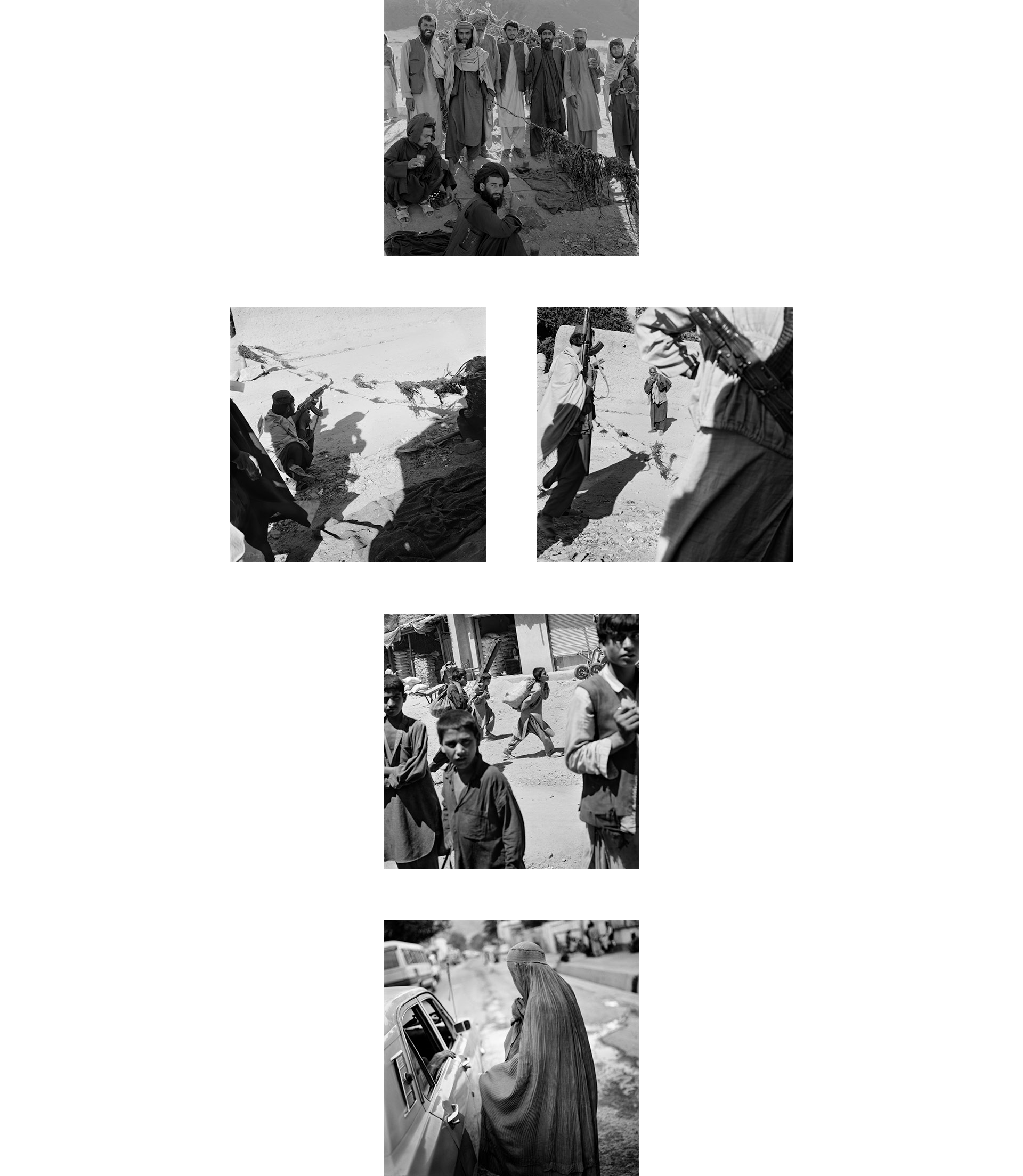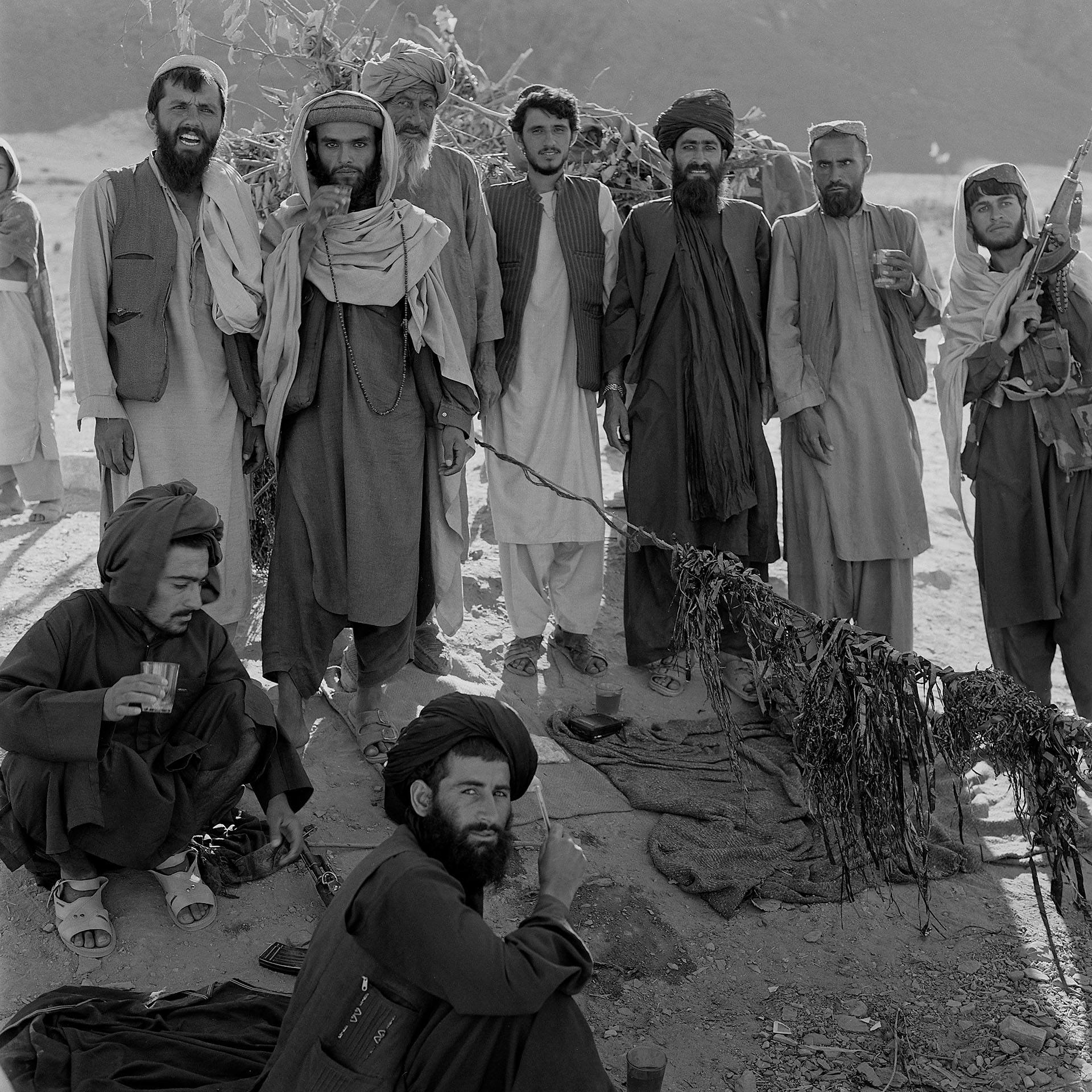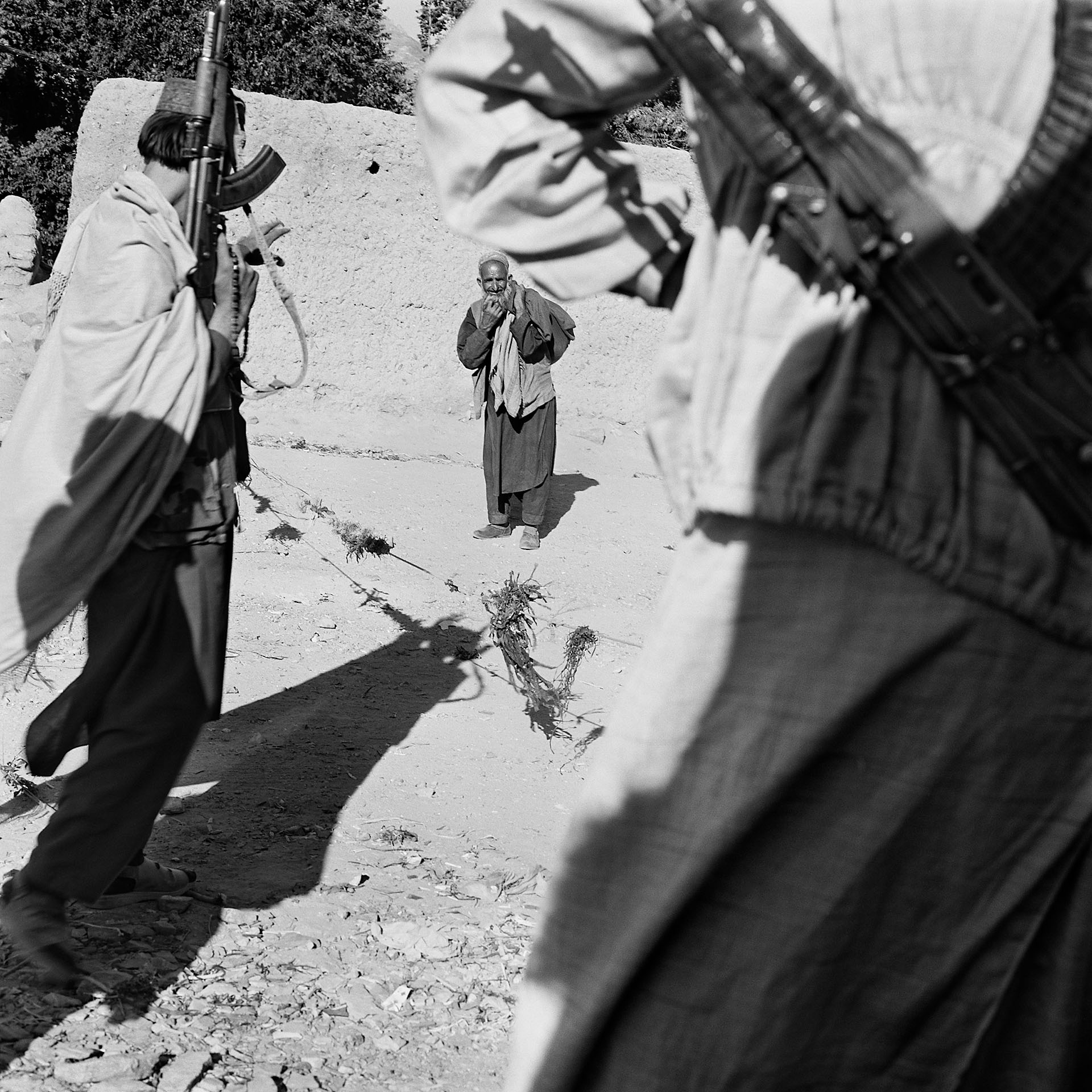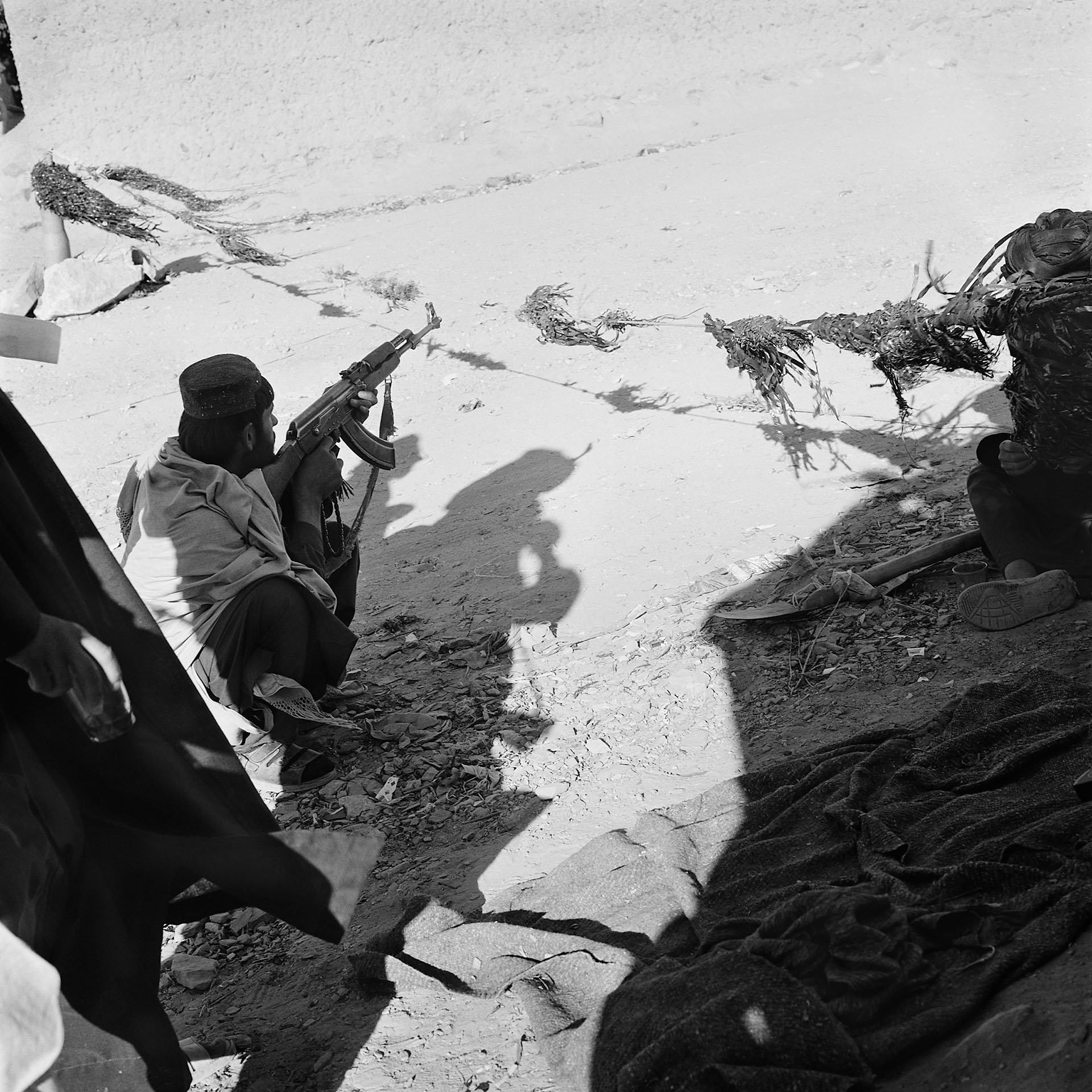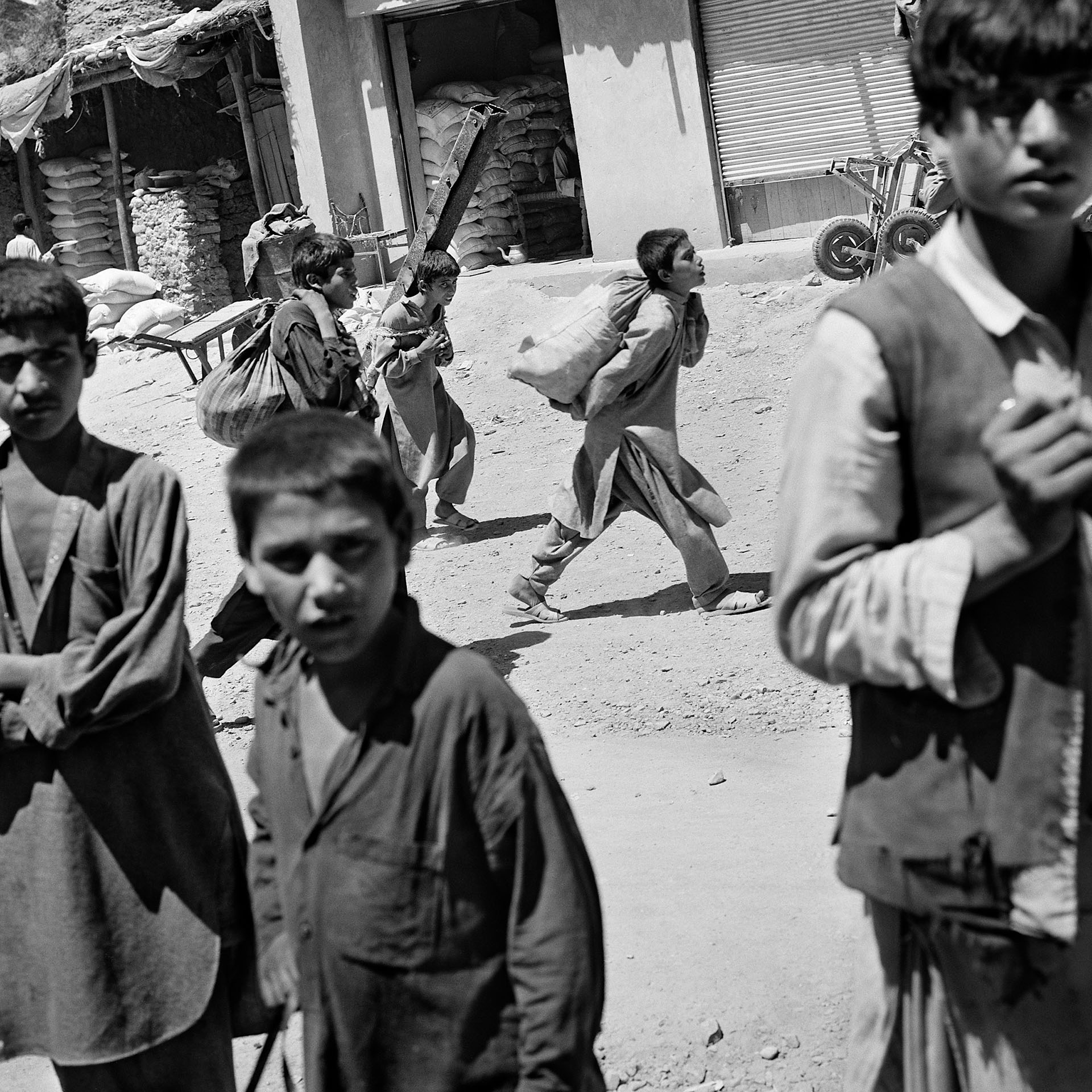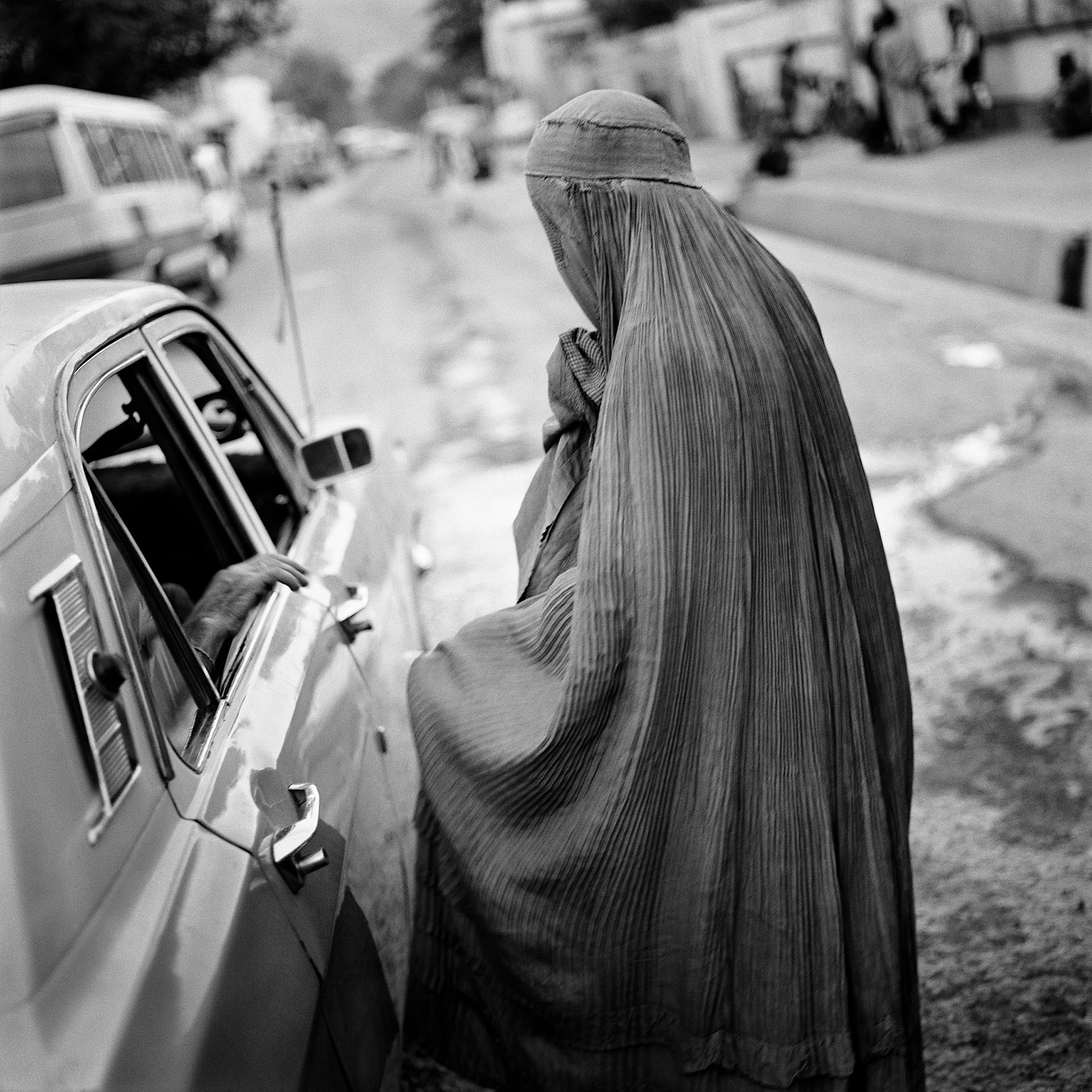1998
Afghanistan – Economy of Survival
Since Kabul fell to the Taliban on September 26, 1996, its conquerors have ousted the self-lacerating Mujaheddin, who defeated the Soviet Red Army, from more than seventy-five percent of the country. The Northern Alliance was formed to oppose this purist movement. With the country now divided along an east-west, ethnically drawn, line separating the Pashtun heartland in the south from the Uzbeks, Hazara, and Tajiks dominating the north, traffic and commerce are heavily impeded. The highway between Kabul and Mazar-e-Sharif that passes through the Soviet-built Salang Tunnel is as embattled as ever. The frontline can only be crossed in remote places, and before reaching it, travellers are harassed at various checkpoints. In fact, road tolls (apart from drug trade revenues) are the only source of income for the Taliban, who have made access to their country very difficult.
The reportage sheds light on the daily life of civil society in Afghanistan, which has become a twofold casualty. As long as all development aid is foreign-funded, the old dilemma persists: Every dollar invested in the water supply is one dollar more than can be spent on arms. But if the money for the water supply stopped coming, the Taliban (like the Northern Alliance before them) would not divert fighters from the battlefield to lay pipes.
Afghanistan is locked in the Year Zero. The task is huge. Only three industrial plants are operating in the country. The largest employer, besides the Taliban’s own forces, is the ICRC, which has a staff of one thousand. Twenty-five per cent of the irrigation channels are destroyed. Soviet minefields have reduced the arable land by one third. Owing to the high costs of smuggled fertilizer, only three out of every fifteen hectares are actually cultivated. In the Pamir province of Badakhshan, 1 kg of opium buys 129 kg of wheat, while the equivalent figure in Nangarhar, bordering Pakistan, is 223 kg. Proximity to Pakistan’s porous border is the most decisive incentive to cultivate opium: That is where the transport system is most efficient, and the revenues highest. Opium keeps financing the war as the regime – whose real capital is Kandahar – has still not been recognized internationally. Because it can only deal with sovereign states, the World Bank is not present in Kabul. The head of the tiny UN mission believes that what the country really needs is not emergency aid, but investment. Twenty years of war and isolation have made the Afghans innovative and inventive to such an extent that they could solve their problems alone. But one precondition of that would be non-interference by regional and global powers. This hope is remote, at best, especially now that Unocal of the U.S. and Bridas of Argentina are discussing oil and pipeline politics with the Taliban – even as parties belonging to the Northern Alliance were seeking to acquire the surplus aid sent by Russia to victims of the recent earthquake to support them in their fight against the Taliban.
The reportage was commissioned and published by Neue Zürcher Zeitung, Zürich, and became part of Travelling through the Eye of History and Burma Road to Wall Street.
Assignments
- 2010–2018Afghanistan – Glacier Walks in Times of War
- 2012Burma Revisited
- 2009Swat – Mutilated Faces
- 2007Kazakhstan – Oil Great Game in Central Asia
- 2005Turkmenistan – A Journey under Surveillance
- 2004China – Farewell to Kashgar
- 2001–2010Afghanistan – A Thirty Years War
- 2001China – The Transformation of Xinjiang
- 2001Afghanistan – Drought and Famine
- 2000Kashmir – Paradise Lost
- 2000Ulanbataar – Children’s Underworld
- 2000London – Going Southwark
- 1999Indonesia – East Timor: Times of Agony
- 1998–1999Borneo – Destruction Business
- 1998Afghanistan – Economy of Survival
- 1997Cambodia – Quiet Days in Pailin
- 1996Tajikistan – Forbidden Badakshan
- 1995Iran – Roads to Isfahan
- 1994–the presentAngkor – The Mercy of Ruins
- 1994Bangladesh – Sandwip: An Island disappears into the Sea
- 1993Calcutta – Durga Puja
- 1992–1996Indochina – Legacies of War
- 1992Cambodia – Resurrecting a Country
- 1991–1992Burma – Behind the Bamboo Curtain
- 1990Ahmedabad – Cotton Mills
- 1987China – The Pulse of the Earth
- 1978–1980Greece – Lavrion Silver
